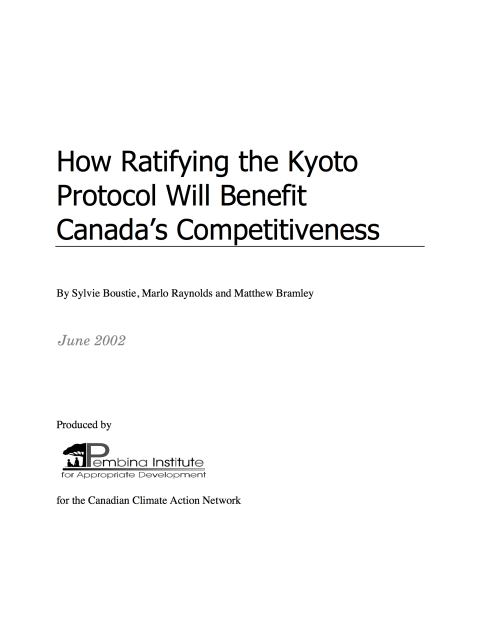A debate is currently raging in Canada about the costs and benefits of the Kyoto Protocol. Opponents of the Protocol claim that Canada cannot afford to ratify, and therefore implement, the Protocol, because it would cause severe economic damage. Prominent in this rhetoric is the notion that the Protocol would damage Canada's economic competitiveness.
"Competitiveness," however, is defined here in a very narrow, short-term sense. In reality, competitiveness is a much broader concept than opponents of Kyoto would have us believe. This report surveys the real-world evidence of how initiatives to reduce greenhouse gas (GHG) emissions and address other environmental challenges have affected a broad variety of indicators of competitiveness. That evidence strongly supports the following findings:
- by taking a lead to address environmental issues, governments position firms in their jurisdictions to be more efficient and competitive in future markets (Chapter 2);
- governments can design policies in a manner that respects legitimate competitiveness concerns (Chapter 3);
- firms that take action to improve efficiency and reduce GHG emissions also improve their competitiveness (Chapter 4);
- major business opportunities are being created for innovative firms as a result of Kyoto (Chapter 5); and
- financial markets reward firms that are environmental leaders (Chapter 6).
Taken together, these findings provide a sound basis for concluding that Canada's competitiveness, when defined broadly, is likely to benefit, not suffer, from a decision by the federal government to ratify the Kyoto Protocol.













